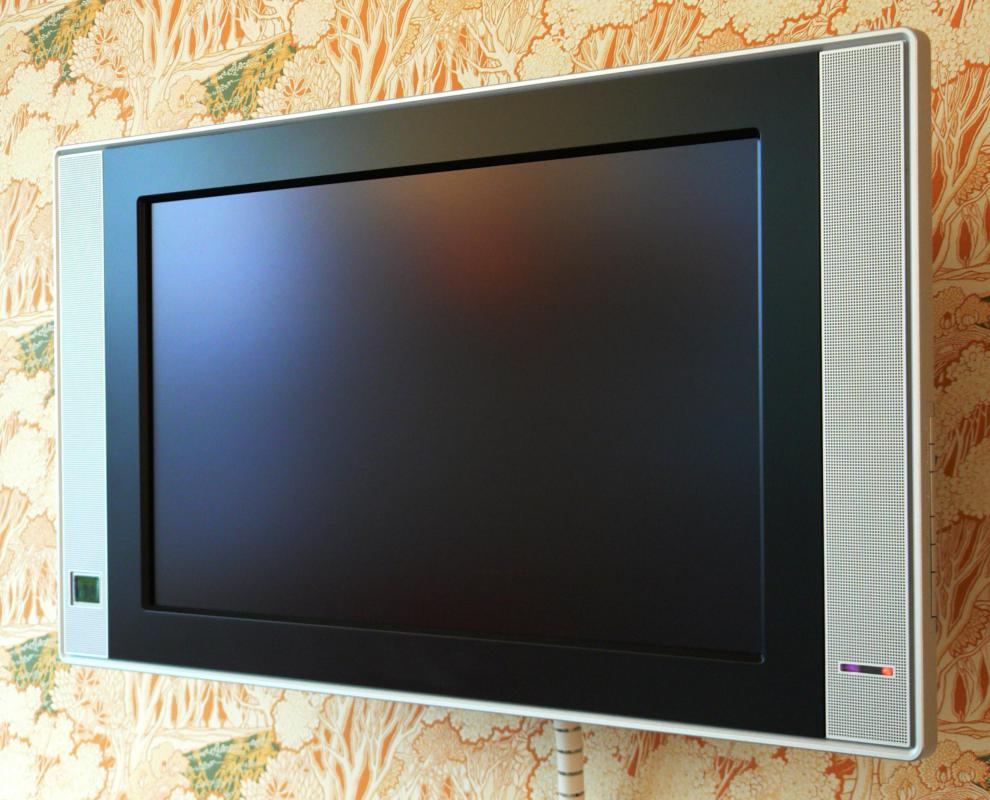At EasyTechJunkie, we're committed to delivering accurate, trustworthy information. Our expert-authored content is rigorously fact-checked and sourced from credible authorities. Discover how we uphold the highest standards in providing you with reliable knowledge.
How Do I Choose the Best TV Extended Warranty?
When considering a TV extended warranty, there are a number of considerations you should keep in mind to ensure you choose a warranty that is effective and legitimate. If you are considering a third party extended warranty, then you should look at the terms and conditions of the warranty to ensure it provides you with the protection you want. There are also some particular terms you should look for and avoid in a TV extended warranty, such as a depreciated value buyout and any unusual termination clauses.
A TV extended warranty is a type of insurance that can be purchased for a television, usually from a company other than the TV manufacturer. One of the first things you should consider is the length of time covered in the warranty and how it overlaps with any manufacturer’s warranty. Most extended warranties begin at the time of purchase, which means that a three-year extended warranty on a TV with a one-year manufacturer’s warranty only protects you for two years in addition to the manufacturer’s warranty. While the two warranties overlap, you may receive improved protection through the extended warranty, but this is not always the case.

In general, you should pay at most about 20% of the value of your TV for a TV extended warranty, though most legitimate warranties are closer to 10% or 15%. You should also look at exactly what is covered under the TV extended warranty, including bulb replacement for rear projection TVs. This is likely to be the most common repair or replacement you need for such a TV, so a warranty without this replacement may be worthless. If your TV is mounted in your home, then you should look for a warranty that provides in-home service, unless you want to deal with shipping or transporting your TV to a repair center.

You should also look for a TV extended warranty that provides work from an authorized service center, as this typically provides greater protection. There are certain terms found in some extended warranties that can have a tremendous impact on any actual service provided by a company. You should avoid a TV extended warranty that includes a depreciated value buyout clause, or unusual termination or dump clauses.
Depreciated value buyout means that the company that issues a warranty can, at time of service, pay you replacement costs based on the “current” value of the television. This means that if you buy a TV for $3,000 US Dollars (USD), and two years later the warranty provides you with replacement costs, the issuer of the warranty can decide the TV is worth only $1,000 USD at the time of service and pay out that amount rather than the initial cost. Similarly, some warranties include dump clauses or termination clauses that allow the issuer to end the service agreement prematurely, even at time of service, and only pay out a depreciated value at the time of termination.
AS FEATURED ON:
AS FEATURED ON:












Discussion Comments
Recently I had a virus on my computer and the regular warranty that came with the computer had already expired. When I bought the computer, the clerk asked me if I wanted the extended warranty and I said no. I wish I had said yes.
I am about to replace my old TV and I definitely plan on buying some type of TV extended warranty. The TV will cost more than my computer, and I don't want to have the same problem as I had with the computer.
I always pay for the extended warranty on electronics I buy. I know very little about electronics and their inner workings, so I feel more comfortable knowing that I am covered. A really good large screen TV can be a big investment, so the last thing I want is to start having TV problems and find out that I am going to have to pay for TV repairs on top of the original cost.
Sure you may never use the warranty, and that's what you hope happens, but it's better to have it and not need it than to need it and not have it.
This article says you should pay between 10 percent and 20 percent of the price of your TV for the warranty. Does that seem like a lot of money for just a warranty to anyone else? I never pay for any type of warranty, and I have never needed one.
A TV warranty beyond what is offered by the manufacturer at no additional cost is not needed 99.9 percent of the time. Most people throw out their old TVs and buy new ones with updated technology long before they have any problems with the old ones.
The warranties are just a way for somebody to make more money. All of those extra 10 and 20 percents add up to a large profit for somebody. Don't waste your money on the television extended warranties.
Post your comments